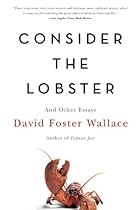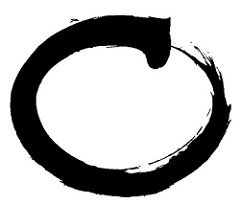Charlie Rose interviewed the late David Foster Wallace, on March 27, 1997
“How’s the water?”
 “..There are these two young fish swimming along and they happen to meet an older fish swimming the other way, who nods at them and says “Morning, boys. How’s the water?” And the two young fish swim on for a bit, and then eventually one of them looks over at the other and goes “What the hell is water?”
“..There are these two young fish swimming along and they happen to meet an older fish swimming the other way, who nods at them and says “Morning, boys. How’s the water?” And the two young fish swim on for a bit, and then eventually one of them looks over at the other and goes “What the hell is water?”
… The point of the fish story is merely that the most obvious, important realities are often the ones that are hardest to see and talk about…
…the so-called real world will not discourage you from operating on your default settings, because the so-called real world of men and money and power hums merrily along in a pool of fear and anger and frustration and craving and worship of self. Our own present culture has harnessed these forces in ways that have yielded extraordinary wealth and comfort and personal freedom. The freedom all to be lords of our tiny skull-sized kingdoms, alone at the center of all creation. This kind of freedom has much to recommend it. But of course there are all different kinds of freedom, and the kind that is most precious you will not hear much talk about much in the great outside world of wanting and achieving…
The really important kind of freedom involves attention and awareness and discipline, and being able truly to care about other people and to sacrifice for them over and over in myriad petty, unsexy ways every day.
… the real value of a real education… has almost nothing to do with knowledge, and everything to do with simple awareness; awareness of what is so real and essential, so hidden in plain sight all around us, all the time, that we have to keep reminding ourselves over and over:
“This is water.”
DFW KenyonAddress 2005 Transcript
David Foster Wallace, 1962-2008 Excerpts from the 2005 Kenyon Commencement Address.
An Appreciation of David Wallace by David Gates: Newsweek Web Exclusive
The New York Times, Sunday Book Review: Great and Terrible Truths :
“Truthful, funny and unflaggingly warm, the address was obviously the work of a wise and very kind man. At the edges, though, there was something else – the faint but unmistakable sense that Wallace had passed through considerable darkness, some of which still clung to him… The glory of the work and the tragedy of the life are relations but not friends, informants but not intimates. Exult in one; weep for the other.” by Tom Bissell
Zen Moments is seeking permission from the publishers to republish a longer extract of this speech.
Photo by Fabrizio Comolli with kind permission.
Thank you to John Morgan for suggesting this article.
This Is Water: Some Thoughts…
“A little gem to keep on your shelf the rest of your life” ![]()
Sure, you can read it free on the Web, but you’ll be so glad you have this beautiful little volume to keep forever. It’s a gem. And a perfect gift for the right person.
“Learning how to think” ![]()
“It’s a short book, only 134 pages, with one sentence per page which leaves a lot of white space on every page. In other words, the book is for people who think about what they read… It’s the Abraham Lincoln approach; he didn’t have a lot to say at Gettysburg in 1863, and the brevity of his remarks was roundly condemned at the time; but, the content has stood the test of time, just as I suspect this book will stand the test of time.” Amazon customer review
 Consider the Lobster: And Other Essays
Consider the Lobster: And Other Essays
By David Foster Wallace
“Do lobsters feel pain? Did Franz Kafka have a funny bone? What is John Updike’s deal, anyway? And what happens when adult video starlets meet their fans in person? David Foster Wallace answers these questions and more in essays that are also enthralling narrative adventures. Whether covering the three-ring circus of a vicious presidential race, plunging into the wars between dictionary writers, or confronting the World’s Largest Lobster Cooker at the annual Maine Lobster Festival, Wallace projects a quality of thought that is uniquely his and a voice as powerful and distinct as any in American letters.” Amazon Review
David Foster Wallace (February 21, 1962 – September 12, 2008) was an award-winning American novelist, short story writer, essayist, and professor at Pomona College in Claremont, California. Wallace is widely known for his 1996 novel Infinite Jest, which was cited as one of the 100 best English-language novels from 1923 to 2005 by Time magazine.
Los Angeles Times book editor David Ulin called Wallace “one of the most influential and innovative writers of the last 20 years”. With his suicide, he left behind an unfinished novel, The Pale King, which was subsequently published in 2011, and in 2012 was a finalist for the Pulitzer Prize for fiction, which was not awarded that year. Wikipedia


Brilliant.
Brazen Teacher left this comment on our Facebook Page: “In regards to ZM’s “This is Water” post- I haven’t read such a pertinent article for my life and teaching- in quite a long time. I emailed the link to my whole address book. Thank you :-)”
There is so much clear thinking and wisdom here – the part about looking differently at people, reminded me of a link sent to Zen Moments by Louise/tonesofhome:
Give ‘Em A Break: Everyday Love and Assumptions by Carrie & Danielle